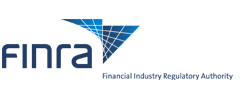
Nancy Condon (202) 728-8379
Herb Perone (202) 728-8464
FINRA Hearing Panel Bars Broker for Manipulating Stock Price Downward to Benefit Hedge Fund Client
WASHINGTON — A Financial Industry Regulatory Authority (FINRA) hearing panel has permanently barred a former Deutsche Bank broker from the securities industry for manipulating the price of Monogram Biosciences (MGRM) stock in an effort to enrich a hedge fund client, himself and his family.
The panel found that Edward S. Brokaw, who worked in the Greenwich, CT branch office of Deutsche Bank Securities, engaged in a pattern of trading designed deliberately to drive the value of MGRM stock down and, in turn, drive up the value of contingent value rights (CVRs) on that stock. Included in the evidence against Brokaw were tape recordings of his phone calls to his firm's trading desk to place sell orders.
The MGRM CVRs were created and issued in December 2004, in connection with the merger of two firms to form MGRM. The CVRs were to be valued during a 15-day pricing period scheduled for 18 months after the merger – beginning on May 19, 2006, and ending on June 9, 2006.
The value of the CVRs was to be determined by the volume weighted average price (VWAP) of MGRM shares trading during that 15-day period. At the end of the pricing period, CVR holders were to receive a payment from MGRM, most or all of which would be in cash. If the final VWAP was at or above $2.90, the CVRs would be worthless. But if the final VWAP was below $2.90, CVR holders would receive a penny-for-penny payment for the amount below $2.90, down to $2.02. The maximum of $.88 per CVR would be paid if the final MGRM VWAP was at or below $2.02.
Brokaw's hedge fund client held approximately 18.5 million CVRs – nearly 30 percent of the 64.8 million MGRM CVRs outstanding. For every penny the final VWAP dropped below $2.90, the value of the hedge fund's CVRs increased by $185,000. If the maximum payout of $.88 per CVR were achieved, the hedge fund would receive approximately $16 million. Brokaw and his family owned 217,000 of the CVRs, with a potential maximum payout of $188,000.
The hearing panel decision notes that the hedge fund owned 3 million shares of MGRM and told Brokaw that it wanted to sell off all of those shares during the pricing period. Prior to market open on the first day of the pricing period, the hedge fund placed an order with Brokaw to sell 50,000 MGRM shares close to the open and another 50,000 shares close to the close. In a tape-recorded phone call that morning, Brokaw told a Deutsche Bank sales trader, "Take 50,000 MGRM at the market. Sell it down. Sell it as low as you want. Sell it hard, 50,000." According to the panel decision, the sales lasted little more than a minute – and MGRM shares dropped from $2.06 to $1.94.
The panel decision quotes another phone call from Brokaw to the sales trader that afternoon, in which he explained the pricing of the CVRs and the strategy behind the hedge fund's instructions to sell close to the market's open and close, saying, "Just so you know what the target price is … So yeah, understand the game that's being played for the next 15 days."
The hedge fund's orders and Brokaw's aggressive placement of those sell orders continued for three trading days. But when Deutsche Bank's compliance personnel reviewed those orders, the firm decided it would no longer execute MGRM sales for the hedge fund's account. Deutsche Bank first suspended, then terminated Brokaw based on his MGRM sales orders for the hedge fund.
The hearing panel concluded that "the objective of the selling strategy was to drive down the price of MGRM shares rather than to obtain the best price … (Brokaw) placed the orders to artificially depress the price of MGRM to impact the pricing of the CVRs." The panel noted that for every penny MGRM stock dropped, the hedge fund lost $29,000 in value on its shares but gained more than $180,000 in value on its CVRs.
The panel also found that Brokaw violated Deutsche Bank's policy requiring the individual accepting a client order to create an order ticket "immediately upon receipt of an order." Instead, Brokaw's sales assistant completed one "booking ticket" each day, each showing a single 100,000-share order to sell, each with a false notation that the order was given by the client directly to the trading desk rather than to Brokaw – thus circumventing automatic branch office compliance review of the orders.
Unless the hearing panel's decision is appealed, its ruling will resolve charges filed in a FINRA complaint against Brokaw filed in December 2008.
Investors can obtain more information about, and the disciplinary record of, any FINRA-registered broker or brokerage firm by using FINRA's BrokerCheck. FINRA makes BrokerCheck available at no charge. In 2009, members of the public used this service to conduct 18.5 million reviews of broker or firm records. Investors can access BrokerCheck at www.finra.org/brokercheck or by calling (800) 289-9999.
FINRA, the Financial Industry Regulatory Authority, is the largest non-governmental regulator for all securities firms doing business in the United States. FINRA is dedicated to investor protection and market integrity through effective and efficient regulation and complementary compliance and technology-based services. FINRA touches virtually every aspect of the securities business – from registering and educating all industry participants to examining securities firms, writing and enforcing rules and the federal securities laws, informing and educating the investing public, providing trade reporting and other industry utilities, and administering the largest dispute resolution forum for investors and registered firms.
For more information, please visit our Web site at www.finra.org.
